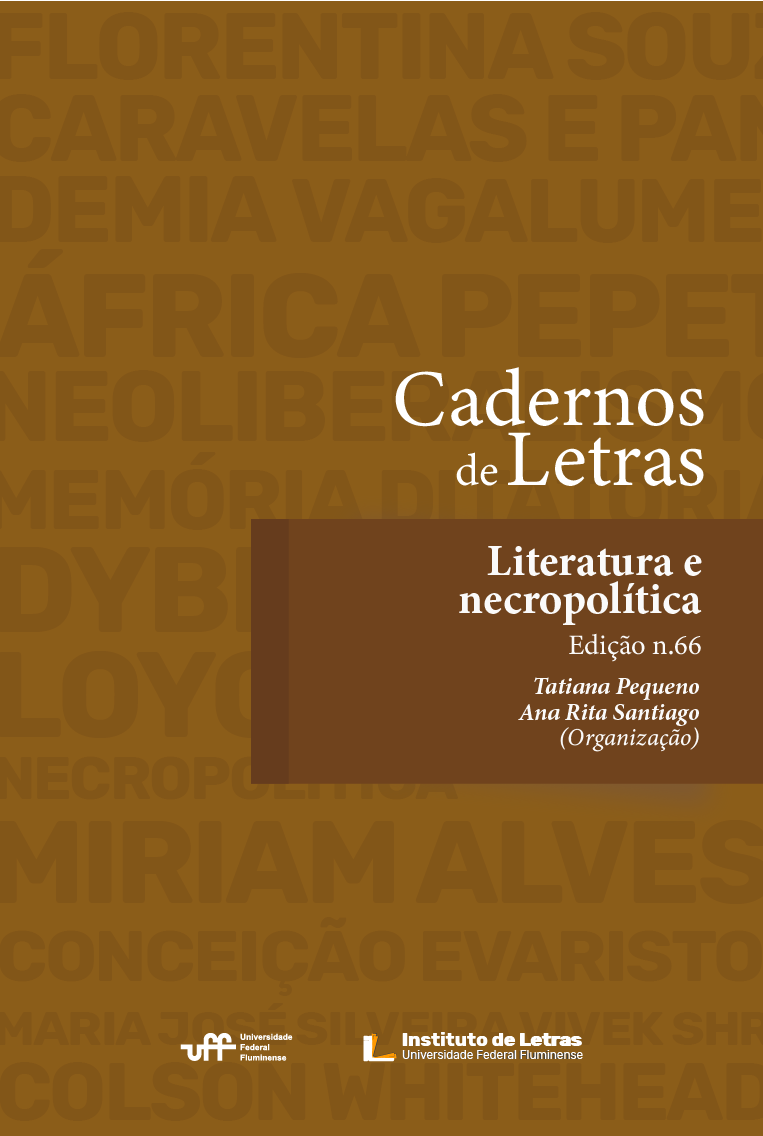From slavery to prison: necropolitics and the (neo)slave narrative in Colson Whitehead’s The Nickel Boys
DOI:
https://doi.org/10.22409/cadletrasuff.v34i66.56778Abstract
In his seventh novel Colson Whitehead focuses on the recent scandalous discovery of clandestine mass graves found at Arthur G. Dozier School for Boys, a reform school in Florida. During its 111 years of existence the school became the target of various investigations as rumors about maltreatment of its juvenile detainees were sporadically spread. Whitehead focuses on the mass graves and specifically on the black corpses and produces a fictional narrative out of these corpses as a form to reject forgetting and unbury a scandalous event that most Americans would prefer not to be informed. Through Mbembe’s concept of necropolitics I claim that The Nickel Boys reveals another scandal: the persistent necropolitical nature of US incarceration system. My argument is that the palimpsest structure of the novel as it juxtaposes the prison novel with the (neo)slave narrative eventually creates a precise illustration of Mbembe’s critique on modern democracies as postulated in his concept of necropolitics.
Downloads
Downloads
Published
How to Cite
Issue
Section
License
Copyright (c) 2024 Caderno de Letras da UFF

This work is licensed under a Creative Commons Attribution-NonCommercial 4.0 International License.
I authorize Cadernos de Letras da UFF to publish the paper of my authorship/responsibility that I now submit, in case it is accepted for online publication.
Moreover, I declare that this contribution is original, that it was not submitted to any other editor for publication, and I sign the present declaration attesting the truth of all its contents.
The copyright of the works published at the virtual space of the Cadernos de Letras da UFF are automatically entitled to Cadernos de Letras da UFF. Their total or partial reproduction is conditioned to the authors' citations and publication data.

Cadernos de Letras da UFF is licensed under a Creative Commons - Attribution-NonCommercial 4.0 International (CC BY-NC 4.0).





